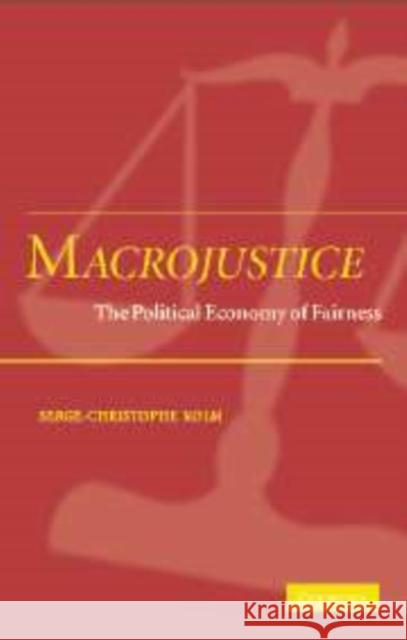Macrojustice: The Political Economy of Fairness » książka
Macrojustice: The Political Economy of Fairness
ISBN-13: 9780521176545 / Angielski / Miękka / 2011 / 544 str.
Macrojustice: The Political Economy of Fairness
ISBN-13: 9780521176545 / Angielski / Miękka / 2011 / 544 str.
(netto: 237,58 VAT: 5%)
Najniższa cena z 30 dni: 186,33
ok. 16-18 dni roboczych.
Darmowa dostawa!
The main features of the just society, as they would be chosen by the unanimous, impartial, and fully informed judgment of its members, present a remarkable and simple meaningful structure. In this society, individuals' freedom is full respected, and redistribution amounts to an equal sharing of individuals' different earnings obtained by the same limited "equalization labour." This also amounts to general balanced reciprocity, where each individual yields to each other the proceeds of the same labour. The concept of equalization labour is a measure of the degree of community, solidarity, reciprocity, redistribution, and equalization of the under consideration. It is determined by a number of methods presented in this study, which also emphasizes the rationality, meanings, properties, and ways of practical implementation of this optimum distribution. This result is compared with various distributive principles found in practice and in political, philosophical, and economic thinking, with the conclusion that most can have their proper specific scope of application. The analytical presentation of the social ethics of economics is particularly enlightening. Serge-Christophe Kolm is the author of more than thirty books and several hundred professional articles concerning, notably, normative economics, public economics, macroeconomics, social change, and political psychological philosophy. He is Professor and Director at the Ecole des Hautes Etudes en Sciences Sociales, Paris.











